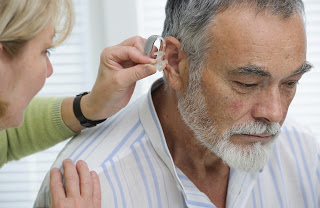Are you old? Surely not.
No matter what your age, chances are that you will say “no” when asked that question. American seniors are feeling better than ever! A recent study by the Pew Research Center found that only 21% of Americans aged 65 to 74 say that they feel old. Even among people over 75, only 35% call themselves old. In a different study, Harvard University researchers found that an average American in the 55-74 age group feels 12 years younger than their actual age.

And of course, there is the age-old quote that claims “you’re only as old as you feel.” The research above should make us feel pretty good! But more than that, aging is a process. It doesn’t happen overnight, and you will experience changes going through it.
You can feel good about yourself, about your health, and about those changes by remembering a few key health tips, featured below.
Nutrition and Exercise
Make sure you don’t forget about eating properly. Maintain a healthy diet with plenty of fruits, vegetables, whole grains, and fat-free or low-fat milk products. Try eating fruits and vegetables of different colors to give your body a wide range of nutrients. Getting plenty of fluids is also important, so be sure to drink plenty of water… fruits and vegetables can help, too!
To make physical activity a routine habit, try choosing exercises that are fun and keep you interested. Not sure what those might be? The local YMCA and other resources may be able to help you find what works for you.
Talking with your physician about what’s right for you can help you decide what changes, if any, you want to make. Any of our physicians, including our newest internal medicine physician Dr. Vivek Sahgal, are happy to answer your questions at an appointment.
Hearing Loss
As we age, hearing loss can become a problem for some individuals. If it affects you, know that hearing aids can greatly help, especially if you select the right ones and have help adjusting to them. There are several varieties of hearing aids and they can be worn in your ear canal, in the outer ear, or behind the ear. These styles vary mainly by size, placement in or on the ear, and by their ability to amplify sound. Wondering who might be able to help you with this? Contact Stacey Shilts, our LMH audiologist in Dr. Short’s Ear, Nose, and Throat office. You can call her to discuss your options at (574) 753-2222.
 Drug interactions
Drug interactions
Managing health conditions is another new experience in aging, and new medications come with it. It’s important to communicate and rely on your physician or provider to help you understand what you’re taking and why you are taking it. Don’t be afraid to ask questions when being given a new medication. Multiple medications can have different drug interactions as well, so if you’re curious about the capsules in your cabinet, write down questions you have and bring them to your next appointment. Websites like www.fda.gov/drugs can provide helpful information for you about interactions as well.
Health insurance
Healthcare reform has completely changed insurance as we’ve known it for a long time. It has affected coverage for everyone, no matter their age. If you have Medicare, you may be wondering how it’s affected you. You can rest assured that your Medicare coverage is protected, and you will still have the same benefits and security that you do now. Additionally, you should receive more preventive services for less, and be able to save money on name-brand drugs. Want to know more? Visit www.medicare.gov to find answers to Medicare coverage questions under the Affordable Care Act.
We hope that as you age, you’ll remember that you can always partner with us to feel your healthiest and your best. We’re on a mission to make “your health our passion” and hopefully that’s something you can feel “well and good” about, too.




